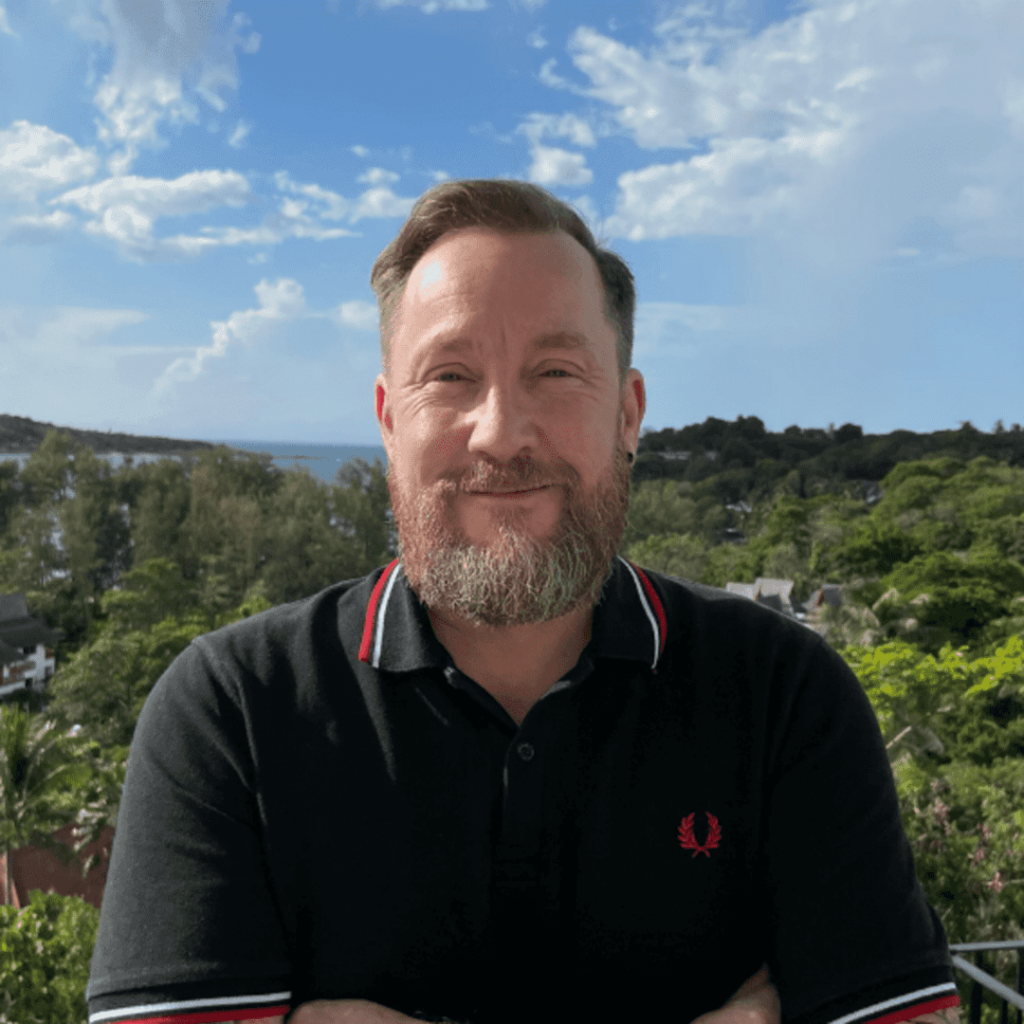Your Complete Guide to PTSD Recovery After Trauma

If you’re reading this, chances are you or someone you love is living with the impact of trauma. Maybe it was a single event, like an accident or assault. Or perhaps it involved long-term adversity such as childhood abuse, combat exposure, or a controlling relationship that left lasting emotional effects. While trauma can alter your sense of safety and connection, recovery is within reach.
Globally, an estimated 5% of people live with PTSD at any given time, with higher rates among military personnel and survivors of interpersonal violence. In the United States alone, about 6% of adults will experience PTSD in their lifetime.
If you or someone close to you is navigating the effects of trauma, know that help is available. Yatra Centre in Thailand offers holistic, trauma-informed care rooted in the latest therapeutic methods. Reach out today to learn how our programs can support your recovery.
This guide will walk you through the latest understanding of PTSD and highlight therapeutic strategies shown to support meaningful recovery.
Understanding PTSD in the Body and Mind
Post-traumatic stress disorder is a condition that affects how the brain and nervous system respond to stress and perceived threats. It can develop after a wide range of distressing events, from a car accident or assault to early neglect or medical trauma. PTSD is often identified by a set of symptoms that persist for more than a month after the traumatic event, significantly interfering with daily functioning.
Studies using brain imaging have shown that trauma alters key regions such as the amygdala, hippocampus, and prefrontal cortex, which are areas involved in threat detection, memory, and emotional regulation. This helps explain why many people with PTSD feel stuck in a heightened state of alert or become emotionally detached in order to cope.
Symptoms of PTSD
PTSD is characterized by a cluster of symptoms that fall into four general categories:
- Intrusion: Recurrent, involuntary memories of the trauma; nightmares; or flashbacks.
- Avoidance: Efforts to avoid thoughts, feelings, or reminders associated with the traumatic experience.
- Negative alterations in cognition and mood: Persistent negative beliefs, distorted blame, persistent fear, guilt, or feelings of detachment.
- Hyperarousal: Heightened startle response, irritability, difficulty sleeping, or difficulty concentrating.
You may also notice subtler symptoms such as feeling emotionally numb, disconnected from others, or struggling with chronic fatigue and pain. Many individuals with PTSD also experience co-occurring conditions such as depression, substance use disorders, and anxiety.
Conventional Treatments: Benefits and Limitations
Cognitive behavioral therapy (CBT), prolonged exposure therapy, and medications like selective serotonin reuptake inhibitors (SSRIs) are among the most widely used treatments for PTSD. Research supports their effectiveness, particularly in reducing avoidance behavior and intrusive thoughts.
However, approximately 30% to 50% of patients do not experience full symptom remission with these methods alone. Some people with PTSD find that the standard approach may feel insufficient. Talk therapy can help organize thoughts and reframe beliefs, but it may not address the physiological imprint of trauma.
Somatic Therapies: Addressing Trauma Through the Body
An increasing number of clinicians and trauma survivors are turning to somatic therapies, which emphasize the role of the body in processing and healing trauma. These approaches work directly with the nervous system to help regulate stress responses and restore a sense of internal safety.
- Somatic Experiencing (SE): Developed by Dr. Peter Levine, SE focuses on tuning into body sensations to track and release survival energy that became trapped during trauma. Research has shown it can reduce PTSD symptoms and increase resilience.
- EMDR (Eye Movement Desensitization and Reprocessing): EMDR uses guided eye movements or other bilateral stimulation to support the reprocessing of traumatic memories. Clinical trials have consistently found EMDR to be effective for both civilian and military populations.
- Internal Family Systems (IFS): IFS invites individuals to engage with different internal “parts” or subpersonalities that may hold trauma. By fostering self-compassion and inner dialogue, IFS can help integrate fragmented aspects of the self.
- Trauma-Informed Yoga and Breathwork: Practices that emphasize mindful movement and conscious breathing can help re-establish trust in the body. A 2021 study published in the Journal of Clinical Psychology found that trauma-sensitive yoga significantly reduced PTSD symptoms in participants compared to a control group.
Each of these methods helps regulate the autonomic nervous system, supporting the shift from chronic fight-or-flight states to calmer, more grounded awareness.
Holistic and Integrative Modalities
Many trauma-informed recovery programs now integrate body-based and spiritual approaches to promote healing on multiple levels. This reflects a growing understanding that trauma can affect a person’s sense of identity, purpose, and belonging.
- Psychedelic-Assisted Therapy: Substances like MDMA and psilocybin, when administered in controlled settings, have shown significant promise in treating PTSD. The Multidisciplinary Association for Psychedelic Studies (MAPS) has reported that 67% of participants in MDMA-assisted therapy no longer met the criteria for PTSD two months after treatment.
- Nature Therapy: Time in natural environments has been linked with reductions in cortisol levels and improvements in emotional regulation. Outdoor-based therapies, including nature walks and gardening, provide sensory grounding and a safe space for reflection. At Yatra, our centre is built with peace and nervous system regulation in mind, helping you to benefit from the peace that comes from nature while working on trauma.
- Group and Community-Based Support: Peer groups, veterans’ circles, and trauma recovery workshops offer opportunities for connection and shared understanding. Social support has consistently been identified as a protective factor against the long-term effects of trauma.
Building Your Personalized Path to Recovery
Effective trauma recovery recognizes individual differences in both trauma exposure and response. A one-size-fits-all approach rarely suffices. Instead, consider building a multi-dimensional recovery plan based on your needs, preferences, and support systems.
- Seek an informed diagnosis: Work with a mental health professional trained in trauma to assess your symptoms and rule out related conditions.
- Identify your needs: Clarify what you want from treatment—relief from anxiety, emotional reconnection, physical safety, or spiritual growth.
- Choose evidence-based and trauma-informed care: Look for providers trained in somatic modalities, EMDR, IFS, or integrative approaches.
- Engage with your body: Include practices like mindful movement, breathing techniques, or body scanning to support physiological recovery.
- Strengthen support networks: Healing is more sustainable when you feel connected to others. This may involve group therapy, trusted friendships, or professional communities.
- Create safe environments: Make your daily spaces supportive of healing. This might mean reducing overstimulation, setting boundaries, or incorporating grounding rituals.
- Track changes over time: Keep a journal or speak regularly with a therapist to observe shifts in mood, behavior, and internal state. Progress is often gradual and non-linear.
- Consider immersive care: Retreat centers like Yatra Centre offer dedicated programs that combine evidence-based therapies with holistic practices. Immersive environments allow for consistent support, structured healing, and time away from triggering environments.
Moving Forward with Support
Living with PTSD can make everyday life feel overwhelming, but recovery is possible and it is happening every day. Thousands of people have found ways to calm their nervous systems, reconnect with others, and create lives filled with meaning and vitality.
If you’re exploring your own healing, consider taking a small step today: speak to a trusted therapist, try a grounding exercise, or explore resources from trauma-informed providers. Whatever you choose, you are not alone, and your journey matters.
PTSD Recovery at Yatra Centre
Yatra Centre in Thailand specializes in trauma recovery programs that combine evidence-based therapies with integrative care. Whether you’re seeking relief from long-standing symptoms or exploring deeper healing, our programs are here to support your next step.
Your healing begins with one act of courage—reaching out. Let that be today.
To take the next step, contact Yatra Centre on +66 96 916 3287 and explore how our trauma recovery programs can be tailored to your personal journey. If you’re seeking clinical support, somatic therapies, or a peaceful setting to begin again, we’re here to help.

Mike Miller
Founder & Clinical Director
Mike Miller is a Certified Clinical Trauma Professional, Certified Addiction Therapist, and EMDR Therapist with advanced training in trauma and mental health. He has over 20 years experience delivering behavioural health treatment to clients internationally. As a leading trauma expert, Mike developed the Yatra programme in 2022 to accelerate healing and support lasting transformation.
Subscribe to our newsletter.
Subscribe to our newsletter and join a supportive community dedicated to understanding, overcoming, and transforming personal trauma.
Related Articles
Can Trauma Lead to Hypersexual Behavior? A Closer Look
Trauma can disrupt a person’s life in multiple ways, to the point of affecting aspects of…...
Why a Somatic Healing Retreat Might Be Exactly What You Need
You’ve tried therapy. You’ve read the books. You’ve done your best to manage stress, anxiety, or…...
Trauma Healing and Rehab in Thailand: An Interview with Yatra
Addiction and unresolved trauma affect millions of individuals and families around the world. These challenges are…...
Can PTSD Meds for Nightmares Help You Sleep?
Research from the National Center for PTSD shows that over 90% of Vietnam vets with post‑traumatic…...



